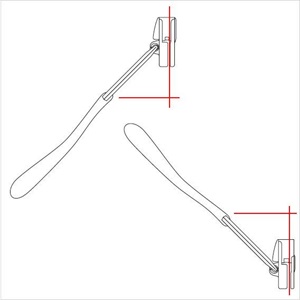Contents
Introduction
Coats Opti is pleased to provide some useful tips to ensure that you get the maximum performance from the zip fastener that forms part of your footwear.
Caring for Zip Fasteners
Do not add attachments
Do not attach any additional tabs, tapes or ornaments to the zip’s puller. These will affect the function of the slider and can also be trapped in the zip itself causing damage.
For your own safety, we recommend you to not attach any extensions or accessories to the zip as these can be trapped in mechanical devices, such as bicycle chains, scooters, escalators etc. It can also become entangled with the attachment on the other leg’s footwear whilst walking or running.
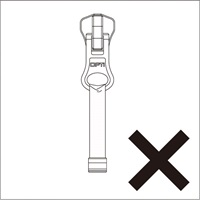
Do not use boot hooks
For your safety do not use boot hooks through the zip slider and/or puller to close or open the zip. This could damage the zip and the puller by applying unnecessary force during closure. Should the puller break suddenly, the boot hook could cause serious injury.
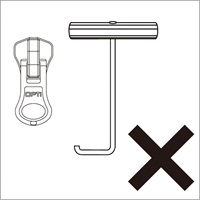
Rinse out sand and dirt
Zip performance can be affected if particles of sand, grit or dirt get in between the teeth and inside the slider. Should this occur, perhaps after a day at the beach, rinse out the sand from the zip teeth and slider using clean water and a cloth. This will also help remove any sea water that can be corrosive if left unattended. Dry in a ventilated and non humid environment and then brush any remaining particles from the zip teeth and slider using a soft brush.
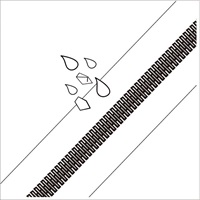
Take care not to trap clothes or zip guard
Take care when closing the zip. Fold any inside leg materials/fabrics away from the path of the slider. If the zip guard or items of clothing do become trapped within the zip slider, ease the slider gently back down the zip teasing out the fabric from the zip. Do not continue to tug heavily on the puller to pass the fabric or this could burst the zip.
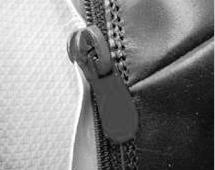
Do not spray chemicals directly on to the zip
Take care when treating your footwear with any chemicals such as suede enhancers / water repellant treatments. These should not be sprayed directly onto the components of the zip as they can sometimes cause oxidation/tarnishing of the metal components and can affect the smooth running of the zip.
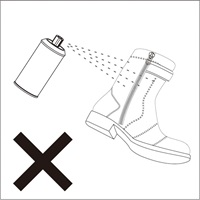
Avoid stepping on footwear, stand upright
When removing footwear it is advisable to stand your footwear against a wall and away from doorways and pathways to avoid any physical damage to the slider and teeth. This is a common reason for returns on footwear and can be avoided with a little care.
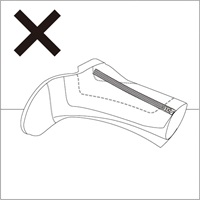
How a Zip Works
There are two main functional slider types used in footwear to hold/lock the slider in position at the top of the zip during wear. This prevents the zip from opening during use.
Auto-lock Slider
Auto-lock slider
Within this slider there is a locking mechanism activated by a leaf spring.
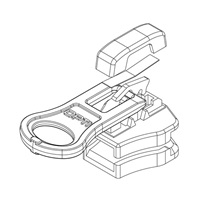
Locked at the top
This locking mechanism secures the slider position at the top of the zip immediately as the puller is released.
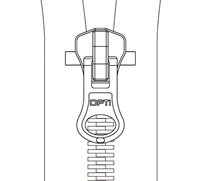
Opening/closing
Similarly, as soon as the puller is tensioned /pulled the lock is disengaged and the slider can be moved freely.
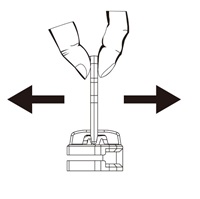
Deslizador de seguro plano
Deslizador de seguro plano
Semi Auto-lock / Flat-lock slider – This slider is fitted with a locking mechanism that is lifted /operated using a cam action.
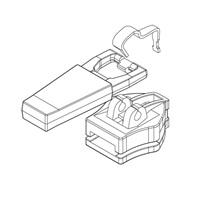
Locked at the top
To disengage the locking mechanism and move the slider it is necessary to lift the puller to 90 degrees to fully withdraw the locking pin.
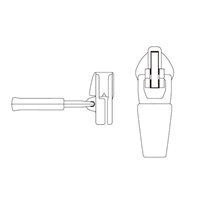 Opening/closing
Opening/closing
To lock the slider in position the puller should rest flat on the body of the slider, the locking pin will then engage in the teeth holding the slider in place.
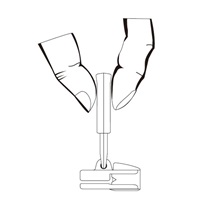
Effect of Attachments, Locking not disengaged
Please note this type of slider will not function correctly and will cause damage to the teeth if not lifted to 90 degrees. So any attachment added to the puller and used by the customer to open / close the zip will result in lasting damage to the zip. This is because the puller will not be held at 90 degrees while opening and closing the zip, if an attachment to the puller is used for this purpose.
